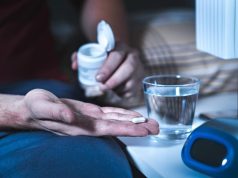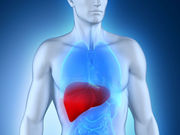Clinical Evidence Synopsis Published for T2DM
Adding sulfonylurea or metformin to insulin decreases HbA1c about 1%
Sharing Passwords Is Widespread Among Medical Staff
Almost three-fourths of survey respondents report having used a colleague's password to access EMRs
Female Physicians May Be Especially at Risk of Burnout
They tend to deal with psychosocial care more than male colleagues but can take steps to reduce stress
Gastric Acid Suppression May Promote Liver Injury
Expansion of intestinal Enterococcus faecalis in mice exacerbates ethanol-induced liver disease
Screening Tools Identify Potentially Inappropriate Meds
However, substantial proportion of PIMS identified in internal medicine ward are not clinically relevant
Potentially Preventable Spending Concentrated in Frail Elderly
Variation in preventable spending across Medicare subpopulations; 43.9 percent of total in frail elderly
Doctors Urged to Speak With Patients About Firearms
Making a public commitment is encouraged as a positive action that physicians can take
Online Ratings Not Aligned With Objective Quality Measures
In addition, consumer ratings are consistent across platforms for specialist physicians
Moderate Alcohol Consumption Tied to Lower Heart Failure Risk
But no link between alcohol intake, onset of atrial fibrillation over median of eight years' follow-up
ACG: Defecation Posture Modification Device Beneficial
Significant reductions in bowel movement duration, straining patterns and increase in bowel emptiness



















